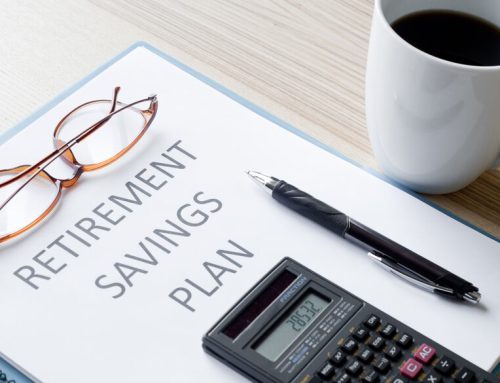Saving for retirement can seem daunting, especially when juggling competing financial priorities. However, understanding and leveraging the power of compound interest can make a significant difference in achieving your long-term goals. The earlier you start, the more time your savings have to grow, making compound interest a vital tool for building your retirement fund.
What Is Compound Interest?
Compound interest refers to earning interest on both your initial investment (principal) and the interest that accrues over time. This cumulative effect accelerates the growth of your savings as your money continues to work for you. For example, an investment of $10,000 with an average annual return of 6% could grow to approximately $60,000 over 30 years, demonstrating the potential impact of compounding.
Why Time Matters
Time is one of the most critical factors in maximizing compound interest. Starting earlier gives your savings more time to grow. Consider these scenarios:
- Saver A: Starts saving $200 monthly at age 25, earning an average 6% annual return. By age 65, they may accumulate over $400,000.
- Saver B: Starts saving the same amount at age 35 with the same return. By 65, they may have just over $200,000.
While these figures are hypothetical, they illustrate how starting early can significantly affect the growth of your savings.
Benefits of Consistency
Consistent contributions are key to optimizing compound interest. Regular deposits into accounts such as 401(k)s, IRAs, or other investment vehicles can create steady growth over time. Strategies to enhance consistency include:
- Setting up automatic contributions to ensure regular savings.
- Taking advantage of employer matching contributions in workplace retirement plans, if available.
- Reinvesting dividends and interest earnings to allow for compounding growth.
Consistency, even with smaller contributions, can have a significant cumulative impact over time.
Managing Risks
While compound interest relies on time and consistency, managing risks is equally essential to preserve your savings. Consider these best practices:
- Diversify your investment portfolio to minimize exposure to market volatility.
- Avoid high-fee investments that can reduce returns over time.
- Consult a licensed financial professional to develop an investment plan tailored to your goals and risk tolerance.
Effective risk management can help protect your savings while allowing for potential growth.
Strategies to Maximize Compound Interest
To make the most of compound interest, explore these strategies:
- Gradually Increase Contributions: Allocate more to your retirement accounts as your income grows.
- Leverage Catch-Up Contributions: If you are over 50, consider utilizing catch-up provisions in retirement accounts to contribute additional funds.
- Utilize Tax-Advantaged Accounts: Accounts such as traditional IRAs or Roth IRAs allow investments to grow tax-deferred or tax-free, depending on the account type and your circumstances.
Maximizing contributions and using accounts with tax advantages can enhance the benefits of compounding.
Why Compound Interest Matters
Compound interest can transform small, consistent actions into substantial long-term results. Even modest contributions, when started early, can grow significantly over time, potentially reducing the pressure to save larger sums later in life. While starting early is advantageous, it’s never too late to begin saving and take steps toward financial security.
Final Thoughts
Compound interest is a powerful tool that can help you build a retirement fund over time. By starting early, contributing consistently, and taking advantage of tax-advantaged accounts, you can work toward a stable and secure financial future. For personalized advice tailored to your needs, consult with a qualified financial professional who can help you develop a comprehensive plan.
Frequently Asked Questions
What is compound interest, and how does it work?
Compound interest allows your savings to grow by earning interest on both your initial principal and the accumulated interest over time.
Why is it important to start saving for retirement early?
Starting early provides more time for your investments to grow through compounding, potentially leading to greater retirement savings.
What if I can’t save much right now?
Even small contributions can grow over time due to the compounding effect. Begin with what you can afford and increase contributions as your financial situation allows.
How can I maximize the benefits of compound interest?
Regular contributions, reinvesting earnings, and using tax-advantaged accounts such as 401(k)s or IRAs are effective ways to optimize compound interest.
Are there risks involved with compound interest?
While compound interest itself is not risky, the investments you choose can carry risk. Diversify your portfolio and seek professional advice to reduce potential losses.






